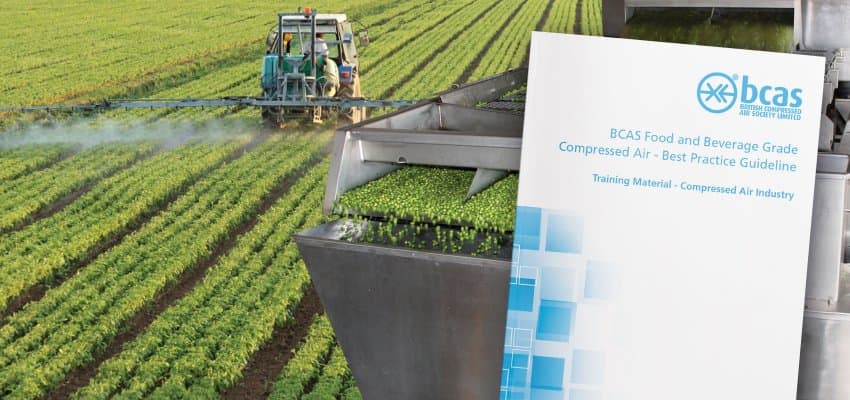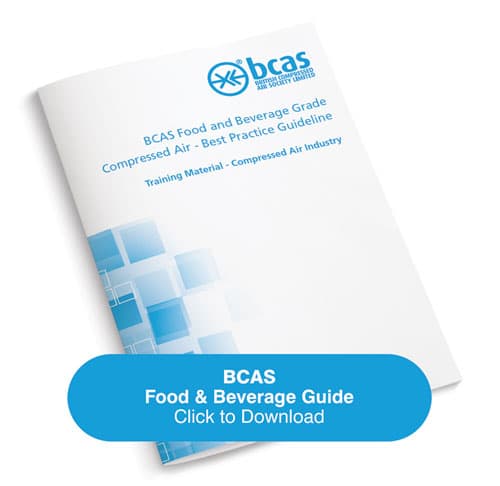Food production through COVID was put under tremendous pressure, as panic buying sparked by the coronavirus required food manufacturers to boost production by up to 50% to meet demand.
Back-up Compressor Installation for Growers food production facility
Meeting the increased production demands as a result of the pandemic prompted G’s Growers Ltd, an independent food producer comprising of 17 grower members, to review their resilience. A key part of this process was stress testing their compressed air system. This revealed their back-up compressor would not cope if the primary compressor failed. With a perishable crop, any delay in processing could be catastrophic, so a replacement back-up generator was specified and successfully installed by Cambs Compressors.
Understanding Food-Grade Compressed Air Standards
Utmost care is taken by food and beverage manufacturers to ensure that the ingredients going into their products are safe for consumption. Cambs Compressors work with many food production facilities and understand preventing risks is a critical aspect of their work. This extends beyond mechanical breakdown and back-up generators to understanding food-grade compressed air standards.
Experts in compressed air safety in food production facilities
All aspects of the manufacturing, processing, packing, transporting, and storing of food must be scrutinised to ensure products are not unknowingly contaminated. A critical component to this is ensuring that the compressed air in food production is free of contaminants, and poses no safety or health risk to the consumer. Managing contaminants effectively is important in all industries, but critical in food and beverage. If compressed air contaminants are not sufficiently controlled, food products may be unknowingly exposed to moisture, debris, and oil.
How can you be sure that your compressed air is and remains at the required standards for use in food and beverage applications?
BPG102 includes guidance on the installation of appropriate inline coalescing filtration and its regular maintenance, as these will remove multiple contaminants include micro-organisms, oil and water aerosols.
In addition, the guidance recommends using a dewpoint of -40ºC to inhibit the growth of micro-organisms, and filtration to reduce the micro-organisms and particulate.
The specification requires the installation of a minimum of two aerosol reduction filters (down to 0.01mg/m3 of oil aerosol and particle reduction down to 0.01 micron).
These protective measures will ensure that, in the unlikely event that the COVID-19 or other viruses still survive the heat of compression, aerosol reduction filters in the compressor room combined with a very low dewpoint and point-of-use dry particulate filters will remove the risk from compressed air.
Do you know the safe operating limits of your pressure systems?
Under the Pressure Systems Safety Regulations 2000, users and owners of pressure systems are required to demonstrate that they know the safe operating limits (principally pressure and temperature) of their systems, and that they are safe under those conditions. They need to ensure that a suitable written scheme of examination is in place before the system is operated. They also need to ensure that the system is actually examined in accordance with the written scheme of examination.
Safety is our priority in supporting our customers during COVID-19
Call Cambs Compressors to get your FREE COVID-19 Compressed Air Risk Assessment and individual compressed air system survey, which audits and provides recommendations so you can make a fully informed risk assessment on your compressed air system.
Cambs Compressors continues to be operational, to offer support to companies that are operating their compressed air systems as the HSE has confirmed it continues to be essential work to maintain compressed air systems. Compressed air systems have a legal requirement under the Pressure System Safety Regulations 2000 to ensure they are maintained on a regular basis and includes receiver inspections, safety component inspections, regular maintenance, repairs and breathing air tests. If these are not completed, then there are potential repercussions to the health of operators and people working in the vicinity of these systems.
Concerning on-site service and installations, these will continue with the Cambs Compressors Covid-19 Secure procedures we have in place, and as with field sales visits, we will continue with site-specific risk assessments. Our internal manufacturing, workshop and office functions will continue under similar procedures.
Our risk assessment created for field sales visits is under constant review. Face coverings are worn, on any site visit and that customer rules on-site are fully complied with. If you have any questions about Cambs Compressors COVID-19 Working Practices, we’re happy to discuss them and take on any feedback.




